Grand Opening of Diversity and Equity Center on Campus
Kayah George, one of the original First Nation Club members, raises her hands to thank everyone in the room.
“Everett Community College has made a commitment to be a more reflective college and continue to transform itself in service to our communities…this is a long journey and it will continue,” says EvCC’s president Dr. David Beyer. EvCC invited all students to the grand opening of the Diversity and Equity Center on Thursday, Jan 31.
It was a very exciting moment for the indigenous students and all who had taken part in helping make it possible to give them a space of their own on campus. The ceremony began with a Native Hawaiian Welcome Chant by the lwi Pono Club Students and Advisors and then a song by the Stillaguamish Canoe Family.
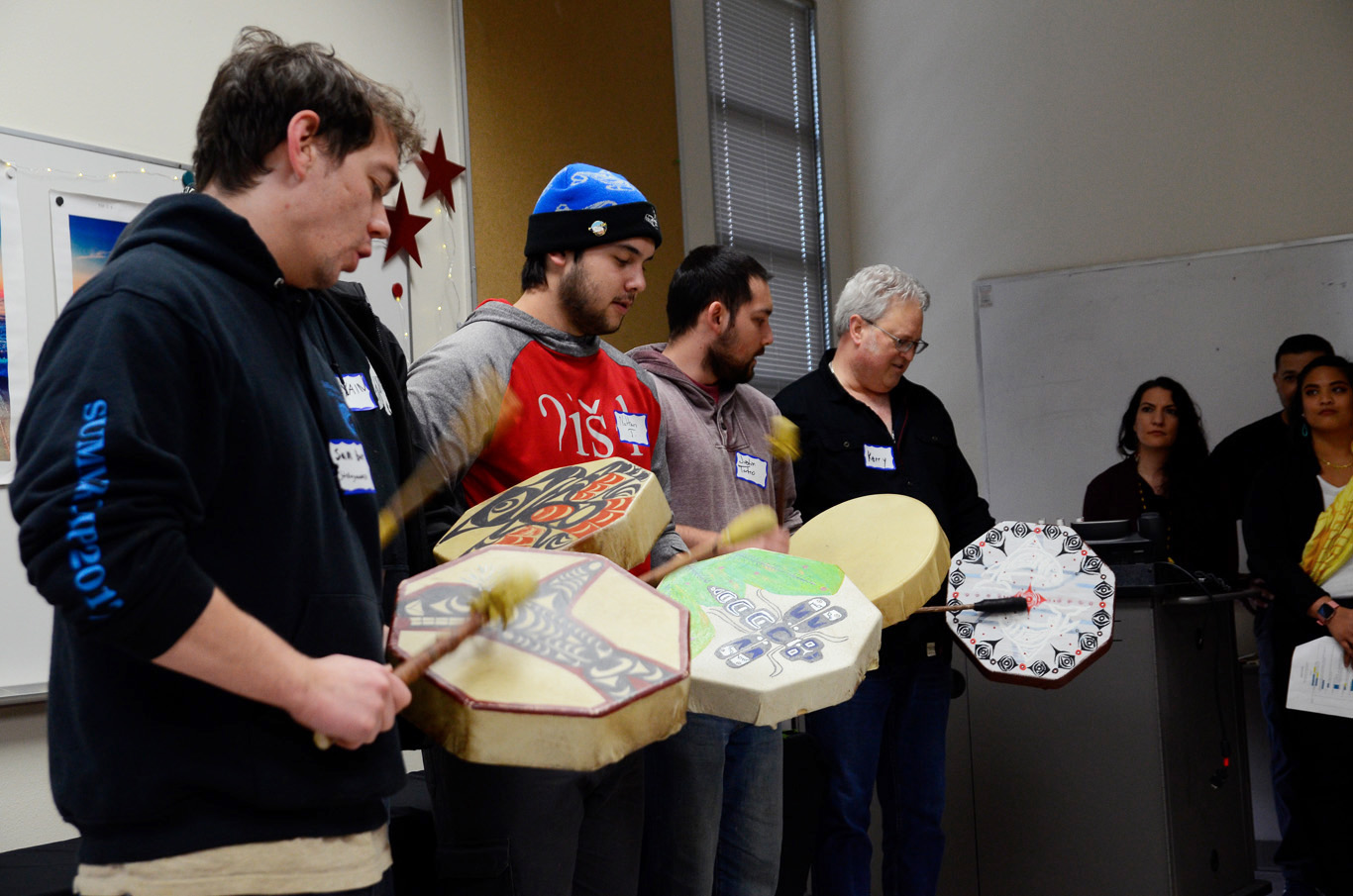
Stillaguamish Canoe Family singing to start off ceremony.
“We would like to welcome you to this space and thank you so much for taking time out of your day to celebrate such a momentous achievement given to us by our students,” says Emma Ka’aha’aina, program manager within the Social Justice and Equity Division.
The original six members of the First Nations Club, Rafael Alverez, Sebastian Corrales, Tara Duffin, Kayah George and Cullen Zackuse made a commitment to their community. They advocated for this space where they could feel safe and proud of who they are as indigenous students.
I thought if I’m feeling this way, there has to be other people who feel this way too.
— Kayah George
“I didn’t feel like I belonged much at this institution and I thought that’s so wrong. My people have been here for thousands of years, since time immemorial, and so I shouldn’t feel this way. I thought if I’m feeling this way, there has to be other people who feel this way too,” says Kayah George, one of the original six, “It’s amazing seeing a dream like this come true.” A sense of pride and joy radiated off of her as she spoke.
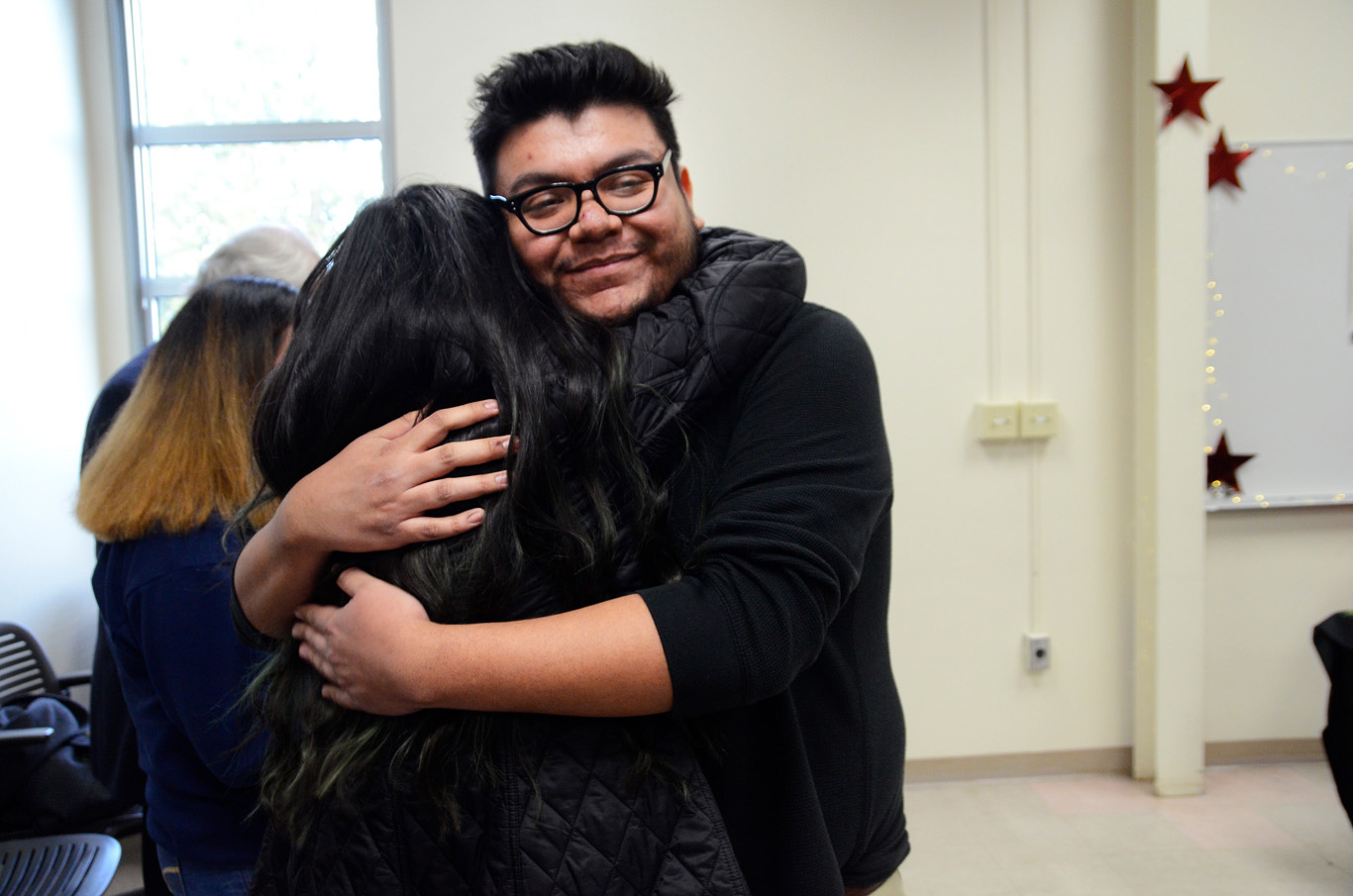
Two of the original First Nation Club members Kayah George and Rafael Alverez celebrating a great moment.
Rafael Alverez, another one of the original six, spoke about how much this meant to him, “Most of my life I lived in a very bad, toxic environment. Most of my family members were bad people. Criminals, alcoholics, addicts. For a while, I lived in that life, most of my childhood. I expected to live in this perpetual cycle I see a lot of natives go through. That changed when I first started going here and I started meeting good friends and good people, other natives. … This space will help future students who come here who felt like I did or how Kayah did and make them feel like they have somewhere where they belong.”
Throughout the entire ceremony, most speakers began their introduction speaking their native tongue. Carolyn Lalacut Moses, an elder of the Tulalip Tribes, spoke of the importance of speaking your native language, “My mother use to say we are gonna lose ourselves if we don’t speak our language… you have to learn it and live it.”
My mother use to say we are gonna lose ourselves if we don’t speak our language… you have to learn it and live it. — Carolyn Lalacut Moses
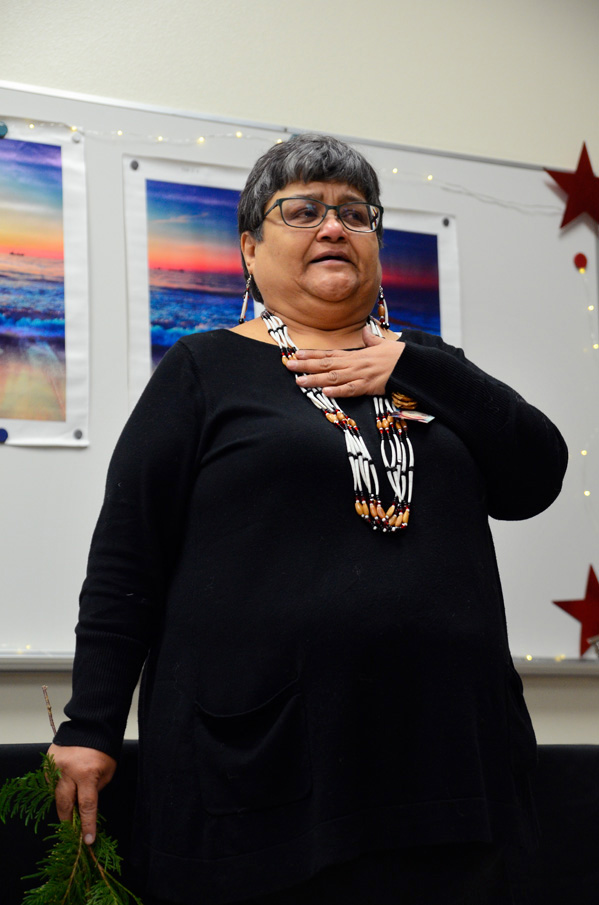
Tulalip Tribes Elder Carolyn Lalacut Moses gets emotional about how important this space is. She says, “I pray for all our youth today and I pray for our elders that sacrificed so we could be here and so our children could be educated and proud.”
Moses then proceeded to bless the room and everyone in it with cedar and a song. “I pray for all our youth today and I pray for our elders that sacrificed so we could be here and so our children could be educated and proud.”
The Diversity and Equity Center’s grand opening has opened a new door for the indigenous students here at EvCC. The Diversity and Equity Center is located in Monte Cristo, room 221. The students are referred to as the ‘New Warriors’ of their ancestors. They are getting an education and moving forward to help their people. This is only the beginning and a major step for progress for them. This will be a day to remember full of joy, pride and thankful feelings for our indigenous students.
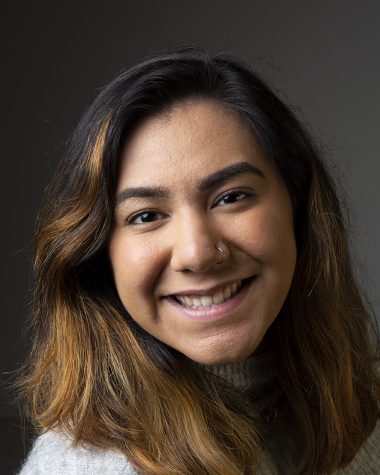
What is something you think everyone should do at least once?
I strongly believe that everyone should travel to another country at least once in...
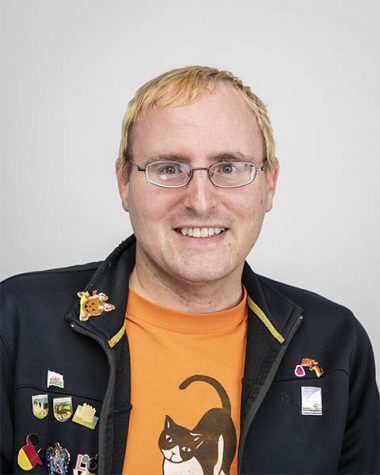
What are you doing when you aren't at The Clipper?
I can be found haunting the various live music venues in almost all major cities between Bellingham...

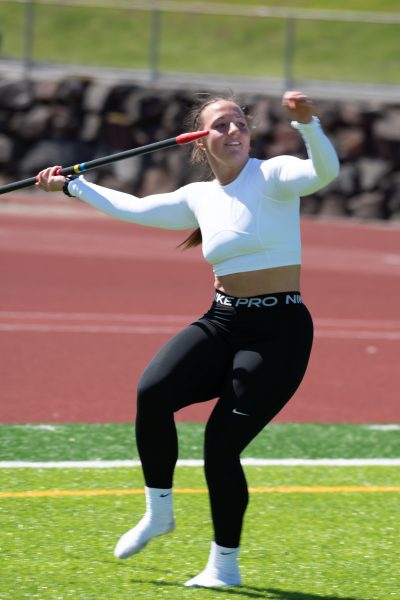
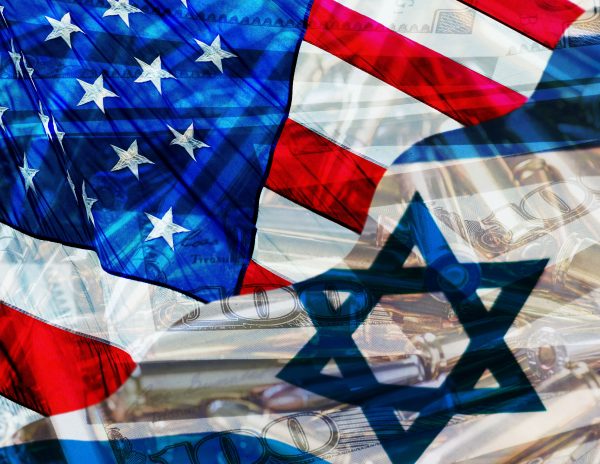
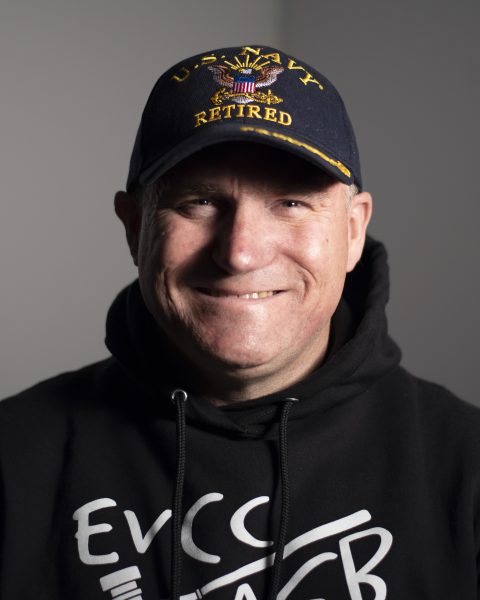
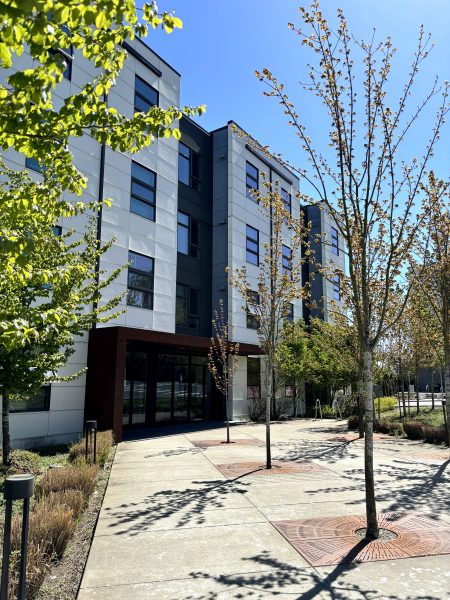
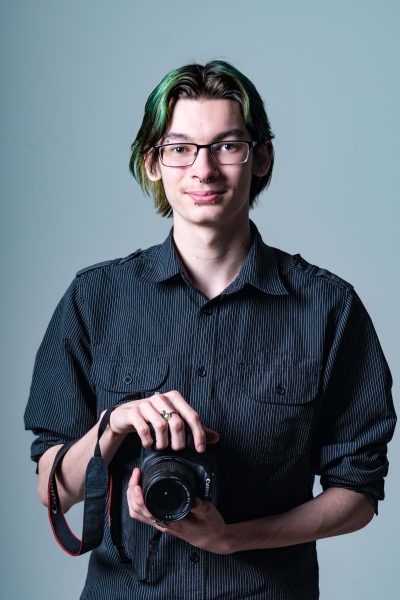
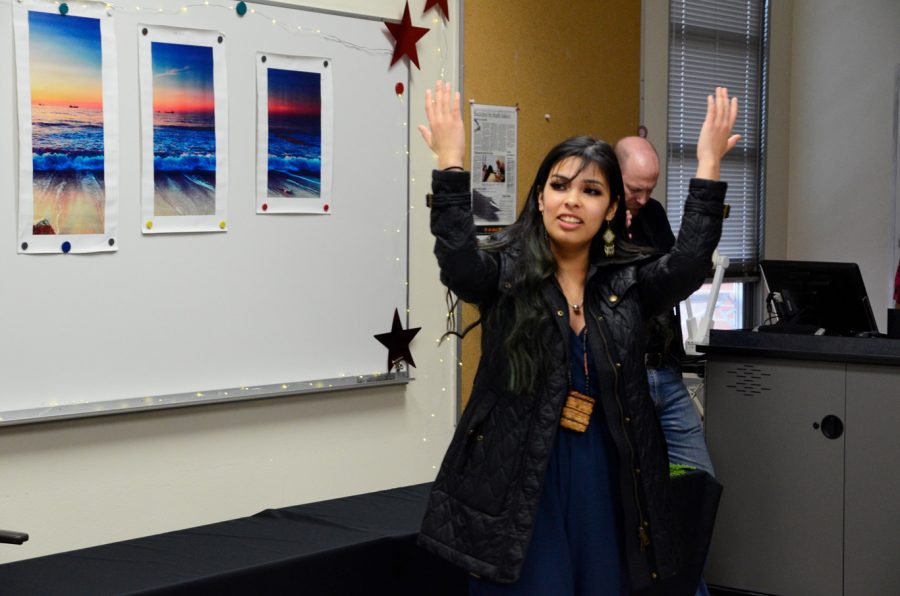
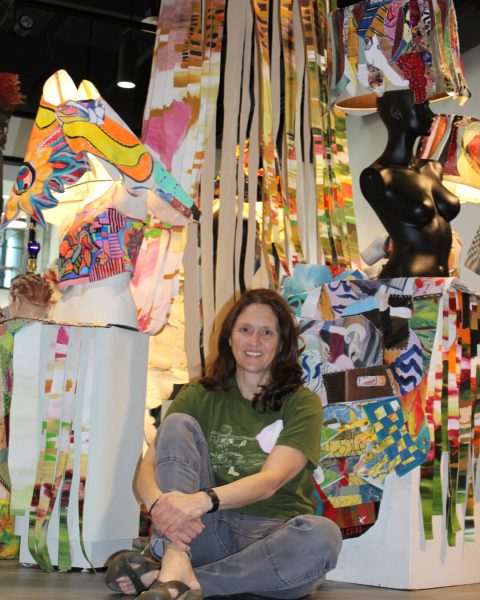
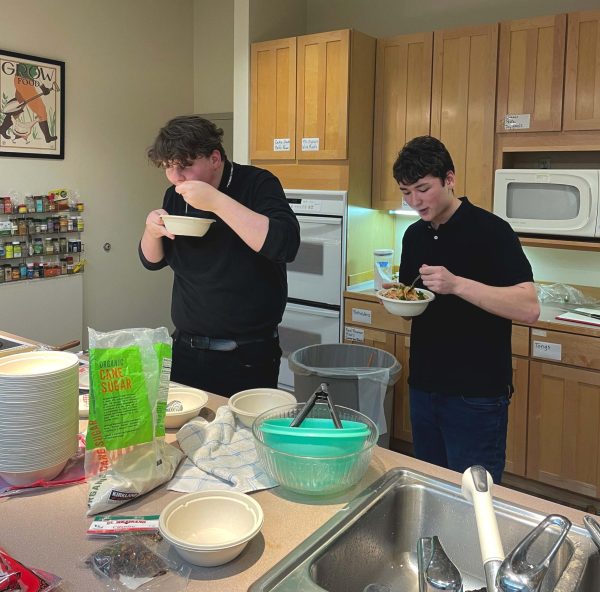
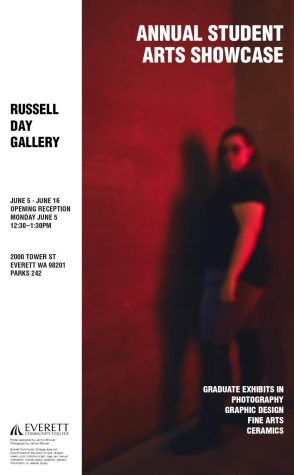
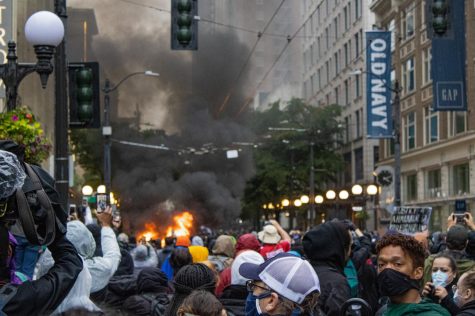

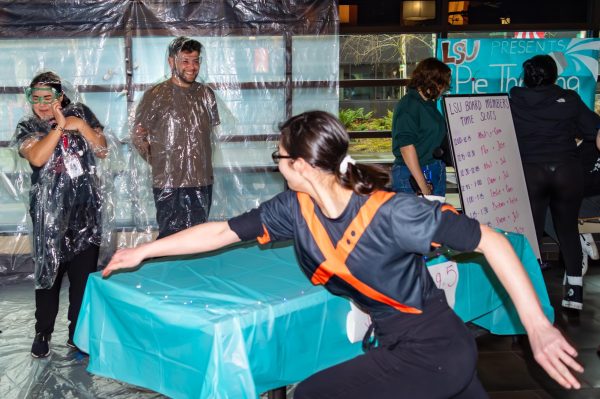
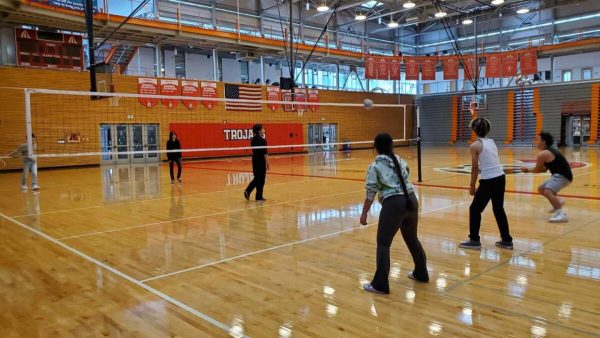
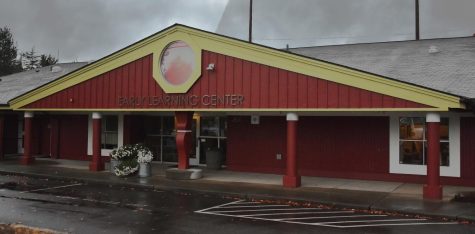
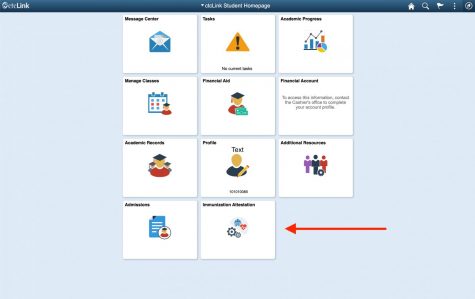
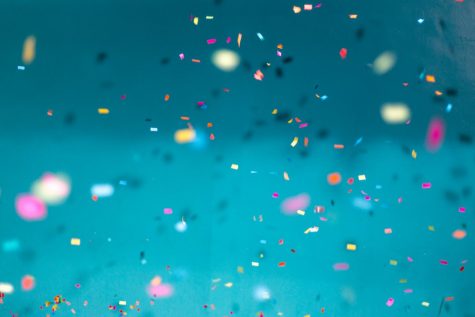
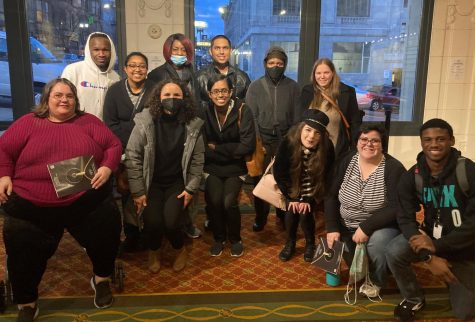
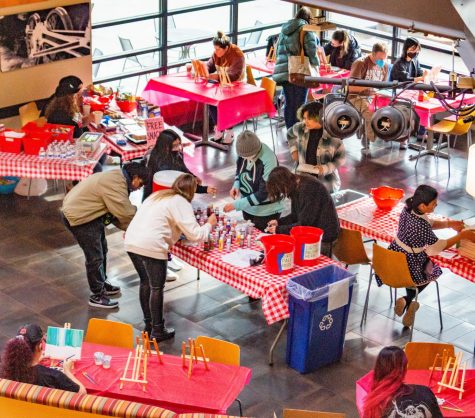
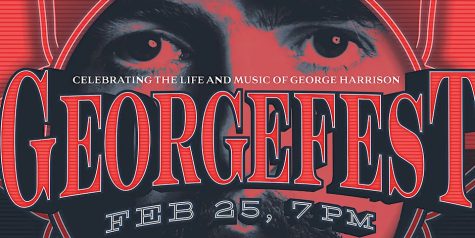
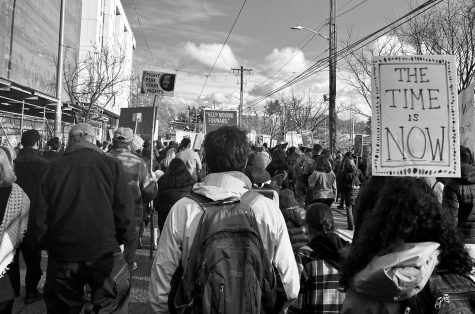
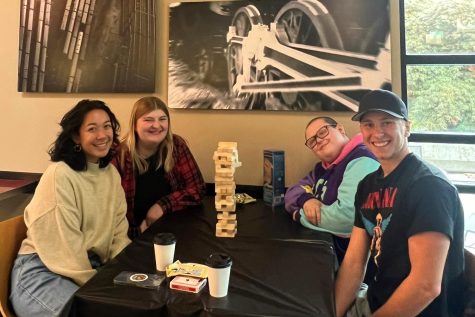
John Yeager • Feb 16, 2019 at 10:07 am
Very cool. Loved the article!